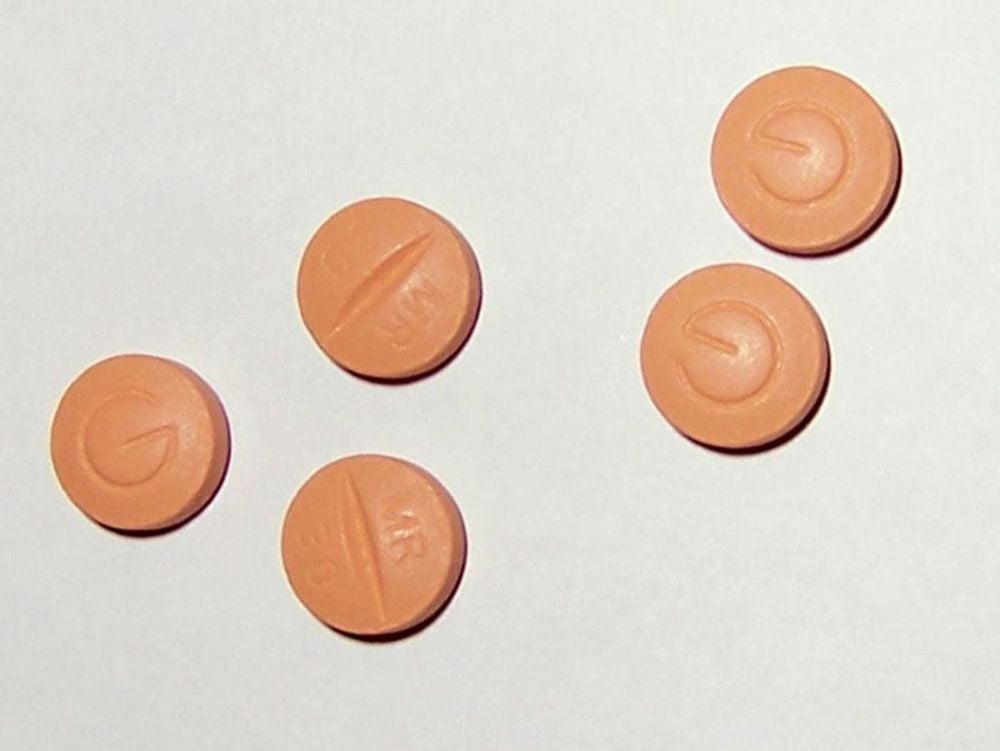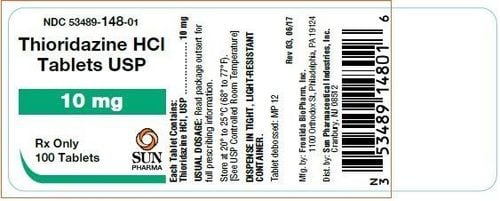This is an automatically translated article.
Depression is an increasingly common mental disorder today. This disease can be controlled with various medications. Among them, a fairly common drug prescribed by doctors is Mirtazapine. What does Mirtazapine do?
1. What does Mirtazapine do?
What does Mirtazapine do? In fact, this is a drug that treats depression by improving the patient's mood and sense of well-being. Mirtazapine restores the balance of neurotransmitters in the brain.
2. How to use Mirtazapine
Find out the drug information provided by the pharmacist before you start using Mirtazapine. The route of use of Mirtazapine is orally as prescribed by the doctor, usually 1 time / day before going to bed. Dosage is based on the patient's depression and response to treatment.
The patient opens the blister with clean, dry hands and places the Mirtazapine tablet on the tongue. The tablet will quickly dissolve and the patient can be swallowed easily with saliva, there is no need to use the drug with water.
Patients should note:
Do not break, chew or crush Mirtazapine tablets; Do not remove the medicine from the blister pack if it cannot be used right away as this may cause the medicine to work less well; Use Mirtazapine regularly, regularly every day to achieve the highest treatment effect; To help with memory, patients should get in the habit of taking Mirtazapine at the same time each day. A person's depressive symptoms may take 1 to 4 weeks of taking Mirtazapine to see an improvement. Patients absolutely do not arbitrarily increase the dose or use more times than prescribed.
Remember to continue taking Mirtazapine even if you feel well, do not stop taking it without consulting your doctor. The patient's condition may worsen when mirtazapine is abruptly stopped and the dose must be tapered off gradually.
Inform your treating doctor if your condition, depressive symptoms do not improve or tend to get worse.

Thuốc Mirtazapine cần sử dụng theo đúng chỉ định của bác sĩ
3. Mirtazapine side effects
Common side effects when using Mirtazapine :
Dizziness ; Sleepy; Dizzy; Increased appetite and weight gain; Dry mouth ; Constipation. If any of these effects persist or get worse, tell your doctor or pharmacist right away. Although there are still unwanted effects, doctors prescribe Mirtazapine when the benefits to the patient must outweigh the harms. Some serious side effects of Mirtazapine need to be reported to the doctor quickly, including:
Swelling of the hands and feet; Run; Confusion; Signs of infection: fever, sore throat; Fast/irregular heartbeat; Faint; Pain swelling red swollen eyes; Dilated pupils ; Vision changes such as seeing rainbows around lights at night, blurred vision. Mirtazapine can increase serotonin and possibly cause serotonin toxicity syndrome. The risk is increased if the patient is taking other medications that also increase serotonin. Therefore, talk to your doctor or pharmacist about all the medications you are taking.
Get medical help right away if you have signs of a fast heartbeat, hallucinations, loss of coordination, severe dizziness, severe nausea/vomiting/diarrhea, muscle twitching, unexplained fever irritability, agitation, or unusual feelings of restlessness.
Serious allergic reactions to Mirtazapine are rare. However, patients need to recognize signs of drug allergy and contact a doctor immediately for treatment, including: generalized or localized rash, swelling with itching of parts (especially face/tongue). /throat), dizziness, difficulty breathing.
4. Some notes when using Mirtazapine drug
If Mirtazapine is indicated for depression, the doctor or pharmacist should take the patient's allergy history including allergy to Mirtazapine or any other type of allergy. Patients should tell their doctor or pharmacist their complete medical history, especially of:
Personal or family history of mental disorders (such as bipolar disorder, mania); Personal or family history of suicidal thoughts; Liver disease, kidney disease; Epileptic; Dyslipidemia such as hypercholesterolemia or hypertriglyceridemia; Cardiovascular disease such as recent myocardial infarction, angina; Stroke ; Severe dehydration; Low blood pressure; History of glaucoma (angle closure). Mirtazapine may cause QT prolongation. This problem can cause a serious (possibly fatal) fast/irregular heartbeat and other symptoms (such as dizziness, fainting) that require immediate medical attention.
The risk of QT prolongation is increased if you have certain medical conditions or are taking other medicines that can cause QT prolongation. Therefore, before using Mirtazapine, please tell your doctor about all medications you are taking and any health problems such as cardiovascular disease (such as heart failure, bradycardia, QT prolongation in ECG). a family history of certain heart disease (QT prolongation on ECG, sudden cardiac death).
Hypokalemia or hypomagnesemia may also increase the risk of QT prolongation. Especially in patients taking diuretics or excessive sweating, diarrhea or vomiting.
Mirtazapine may cause dizziness or drowsiness. Do not use substances that can make you dizzy or drowsy, such as alcohol or marijuana. Also, do not drive, use machinery, or do things that require alertness until it is safe to do so.
Mirtazapine may contain aspartame. If a patient has phenylketonuria (PKU) or any condition that requires restriction of aspartame (or phenylalanine) use, consult your doctor or pharmacist on how to safely use Mirtazapine.
Older adults may be more sensitive to the side effects of Mirtazapine, especially drowsiness and QT prolongation. Mirtazapine should be used only when clearly needed during pregnancy. If Mirtazapine is used during the third trimester of pregnancy, the infant may experience symptoms such as difficulty feeding, difficulty breathing, convulsions, muscle stiffness, restlessness or constant fussiness. Notify your doctor immediately if your baby is born with the above symptoms.
However, if untreated mental/mood disorders (such as depression) can lead to some more serious conditions, the person should not stop taking Mirtazapine unless advised by their doctor. point. If the depressed patient plans to become pregnant, is pregnant, or thinks she may be pregnant, discuss with her doctor the benefits and risks of using Mirtazapine during pregnancy. Also, because Mirtazapine can pass into breast milk, consult your doctor before breast-feeding.

Bệnh nhân động kinh nên lưu ý khi dùng thuốc Mirtazapine
5. Mirtazapine drug interactions
Drug interactions can affect how Mirtazapine works or increase your risk of serious side effects. Taking MAO inhibitors with Mirtazapine can cause serious drug interactions (even death). Therefore, avoid taking MAO inhibitors (isocarboxazid, linezolid, moclobemide, phenelzine, procarbazine, rasagiline, safinamide, selegiline, tranylcypromine) during treatment with Mirtazapine. Most MAO inhibitors should not be used for at least 2 weeks before and after treatment with Mirtazapine.
The risk of serotonin toxicity syndrome is increased if the patient is also taking other drugs that increase serotonin such as meth, ecstasy, certain antidepressants (including SSRIs such as fluoxetine/paroxetine, SNRIs such as duloxetine/venlafaxine), tryptophan. The risk of serotonin toxicity syndrome may be higher when a person is just starting or increasing the dose of these drugs.
Inform the doctor or pharmacist if the patient is taking other products that cause drowsiness including: alcohol, marijuana, antihistamines (such as cetirizine, diphenhydramine), sedatives (such as alprazolam, diazepam, zolpidem), muscle relaxants (such as carisoprodol, cyclobenzaprine) and opioid pain relievers (such as codeine, hydrocodone).
Check the ingredients on the packaging of all medications you are taking (such as those for allergies or coughs and colds) because they may contain ingredients that cause drowsiness. If you overdose on Mirtazapine, the patient may have the following symptoms: very fast/irregular heartbeat, severe dizziness, fainting.
Regular psychiatric visits (and possibly tests) to monitor disease progression and early detection of Mirtazapine side effects.
Mirtazapine is a medicine prescribed and prescribed by doctors to treat depression. To ensure effective treatment, patients need to take prescription drugs, when there are abnormal signs, they need to go to medical centers soon for examination and treatment.
Please dial HOTLINE for more information or register for an appointment HERE. Download MyVinmec app to make appointments faster and to manage your bookings easily.
Reference source: webmd.com













